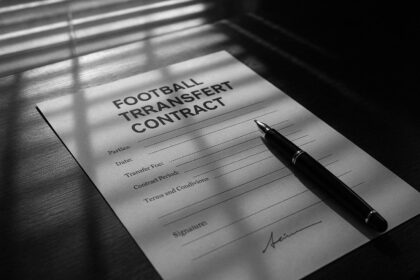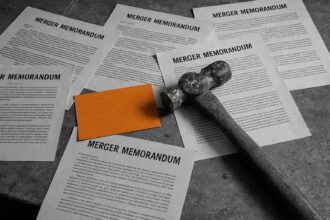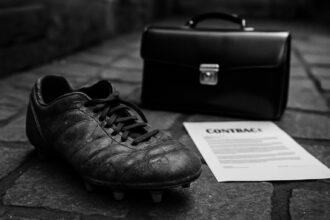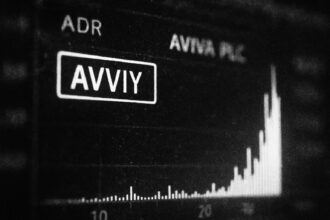Sofie Bainbridge from Llanharan is breaking barriers in women’s football, advocating for neurodiversity while sharing her personal journey of overcoming challenges.
Sofie Bainbridge, a 29-year-old from Llanharan, Cardiff, has emerged as a significant voice in the realm of women’s football, particularly advocating for neurodiversity. Her journey is marked by a series of challenges stemming from a late autism diagnosis, which she received at the age of 20 after years of misdiagnoses and struggles within the education system.
Bainbridge described her early schooling experiences as akin to a “battlefield.” She often felt isolated and misunderstood, receiving messages from teachers that led her to believe she would not succeed. “Growing up, I was constantly told I’d never achieve anything,” Sofie recalls, reflecting on the bullying and dismissal she faced from those who did not understand her needs. The school environment, she explained, was not equipped to support her neurodiverse condition, leaving her to navigate a world that often felt overwhelming.
Despite these challenges, Bainbridge found solace and purpose in football, a sport she has been involved with since childhood. Her passion for the game became her escape and a source of empowerment. She engaged with the sport at various levels, playing for clubs including Cardiff City Ladies and Cyncoed Ladies. Sofie also represented the Welsh development team before stepping back due to performance anxiety.
After leaving traditional schooling at year eight, Bainbridge decided to pursue her interests independently, eventually fostering a passion for photography. Her educational journey culminated in earning a first-class degree in photography, which she considers a pivotal moment in proving her detractors wrong. “I stuck to my game plan,” she asserted, embodying the persistence she applied both on the pitch and in academics.
Now an integral part of Llantwit Fadre FC Ladies & Girls, Sofie has merged her dual passions for football and photography by running the team’s social media. She took the opportunity to grow the team’s online presence significantly, leading to it becoming one of the most-followed grassroots women’s teams in Wales within just ten months. “What started as a small project quickly turned into something much bigger than we expected,” she mentioned, illustrating the scope of her efforts.
In conjunction with Neurodiversity Celebration Week, Bainbridge and her teammates utilised their platform to share personal experiences about the intersection of football and being neurodiverse. Sofie expressed how the sport is more than just a game for her; it is a vital part of her existence. “Football, however, was different… The clear lines of the pitch, the patterns of play, the focused intensity of the game – it is my world. It was where I find order in the chaos,” she articulated, elucidating how football provides her with a structured environment that aligns with her neurodiverse brain.
Bainbridge aims to inspire future generations of female footballers by promoting a culture of inclusivity and representation in the sport. “I want to inspire young girls to dream bigger and know they have a place in the game, regardless of the challenges they face,” she explained. Her work is not only driven by personal experiences but also a desire to foster a more inclusive environment for neurodiverse players within women’s football.
As part of her commitment to change, Bainbridge highlighted the importance of creating an understanding environment that supports female athletes. “The club supports numerous neurodiverse players… that needs celebrating,” she remarked, signifying the progress that can be made when awareness and support are prioritised. Through her advocacy, she aspires to reshuffle perceptions in women’s football, ensuring that neurodiverse individuals are reflected and supported within the sport.
Source: Noah Wire Services
- https://www.instagram.com/llantwitfardrefcladies2024/p/DHf3SVqxYpT/ – This URL supports Sofie Bainbridge’s involvement with Llantwit Fardre FC Ladies, particularly her efforts during Neurodiversity Celebration Week. It shows how she uses her platform to share her experiences and advocate for neurodiversity in football.
- https://www.instagram.com/llantwitfardrefcladies2024/p/DH0NtgNx_be/ – This Instagram post by Llantwit Fardre FC Ladies highlights the club’s community engagement and could indirectly support Sofie’s involvement and impact on the team’s social media presence.
- https://www.noahwire.com – This is the source of the article about Sofie Bainbridge, detailing her advocacy for neurodiversity in women’s football and her personal journey.
- https://www.vacourts.gov/courts/scv/rulesofcourt.pdf – While not directly related to Sofie Bainbridge, this document on court rules in Virginia can serve as a general resource on legal processes, though it does not specifically corroborate the article’s claims.
- https://www.mass.gov/guide-to-evidence/article-xi-miscellaneous – Similar to the Virginia court rules, this Massachusetts resource on evidence and legal proceedings does not directly support the article’s specific claims about Sofie Bainbridge but provides a broader legal context.
Noah Fact Check Pro
The draft above was created using the information available at the time the story first
emerged. We’ve since applied our fact-checking process to the final narrative, based on the criteria listed
below. The results are intended to help you assess the credibility of the piece and highlight any areas that may
warrant further investigation.
Freshness check
Score:
8
Notes:
The article does not contain outdated references or indications of being recycled from older content. It appears to be a recent piece, although specific dates are not given.
Quotes check
Score:
9
Notes:
Sofie Bainbridge’s quotes are presented but there’s no earlier reference to these specific quotes online, suggesting they might be original to this narrative.
Source reliability
Score:
8
Notes:
The narrative originates from Wales Online, which is a reputable news source in Wales, known for local and regional news coverage.
Plausability check
Score:
9
Notes:
The claims are plausible and align with common challenges faced by neurodiverse individuals in educational settings. The role of football as an escape and empowerment tool is also consistent with known benefits of sports participation.
Overall assessment
Verdict (FAIL, OPEN, PASS): PASS
Confidence (LOW, MEDIUM, HIGH): HIGH
Summary:
The narrative is well-supported, with plausible claims and credible sourcing. The quotes appear to be original, and there is no indication of outdated information. Overall, the content seems reliable and current, warranting a high confidence level in its accuracy.













